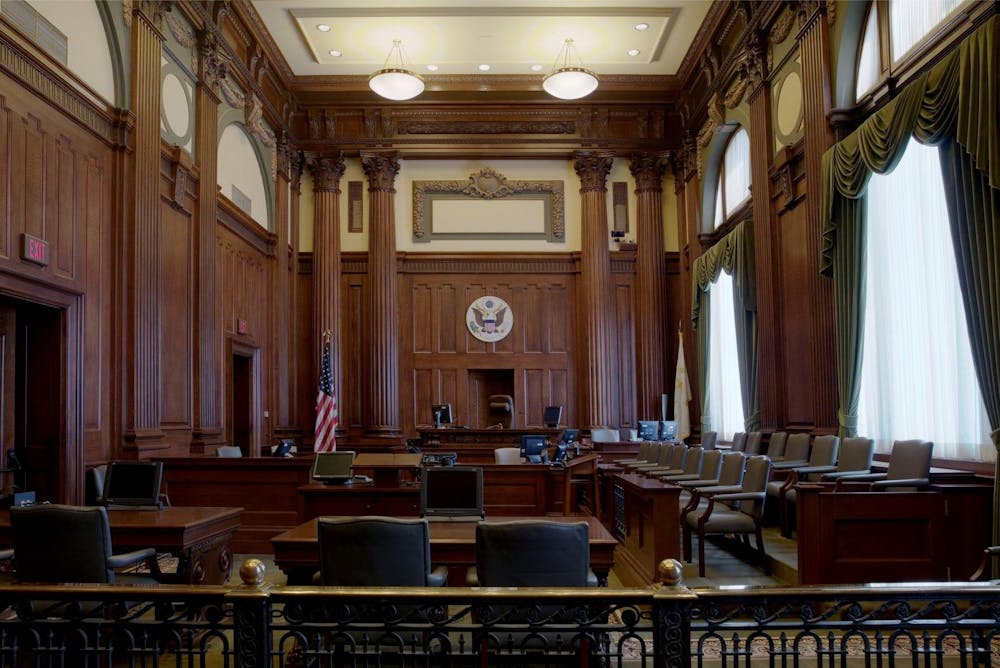On Wednesday afternoon, Rhode Island Chief Judge John McConnell Jr. ’80 signaled an openness to blocking the implementation of President Trump’s sweeping pause on federal funds.
He asked the attorneys arguing against the freeze to submit proposed language for a potential restraining order, to which Trump’s Department of Justice will have 24 hours to respond.
The lawsuit, filed by the attorneys general of 22 states and the District of Columbia on Tuesday, argued that the directive from the White House “violates the (Administrative Procedure Act) and is unconstitutional,” and that withholding funding would “result in immediate and devastating harm to Plaintiff States.”
A federal judge in a separate case temporarily blocked the Trump administration’s implementation of the funding freeze on Tuesday.
Earlier in the day, the White House rescinded the Office of Management and Budget’s memorandum authorizing the freeze. In a post on X, White House Press Secretary Karoline Leavitt undercut the notion that the freeze had been canceled, writing that “this is NOT a rescission of the federal funding freeze. It is simply a rescission of the OMB memo.”
She added that the executive orders “on federal funding remain in full force and effect, and will be rigorously implemented.”
The White House budget office initially ordered the freeze on Jan. 27, with Acting Director of the Office of Management and Budget Matthew Vaeth publishing a memo ordering federal agencies to “temporarily pause” the distribution of significant federal funds.
During Wednesday’s hearing, Sarah Rice, an attorney in the Rhode Island Attorney General’s Office, argued that the states’ request for the temporary restraining order aims to prevent the government from “pausing, impeding, blocking, cancelling or terminating their compliance with awards and obligations to provide federal financial assistance.”
The temporary restraining order targets the OMB memorandum specifically, which initially authorized the freeze. But since the government rescinded the memo, Daniel Schwei, an attorney at the Department of Justice, argued that the order no longer applies and should be considered moot.
Schwei argued that the plaintiffs are asking to “broaden their lawsuit” beyond the memo and “are now effectively seeking relief against all of the Executive Orders that were listed” in the memo.
Rice argued that although the government rescinded the memo, “the scope of the policy that was articulated in the memo has not been changed.”
McConnell agreed with Rice and her colleagues, finding that “while the piece of paper may not exist, there’s sufficient evidence that the defendants are acting consistent with that directive.”
“The arguments that (states) have about needing a temporary restraining order for the various legal rights exist,” he added.
The White House did not immediately respond to The Herald’s request for comment.
This is a developing story. Check back for updates.

Avani Ghosh is a Metro editor covering city and state politics. She is a junior from Ohio studying Health and Human Biology and International and Public Affairs. She is an avid earl grey enthusiast and can be found making tea in her free time.

Aniyah Nelson is a university news editor overseeing the undergraduate student life beat. She is a senior from Cleveland, OH concentrating in political science and sociology. In her free time, she enjoys listening to music and watching bloopers from The Office.





